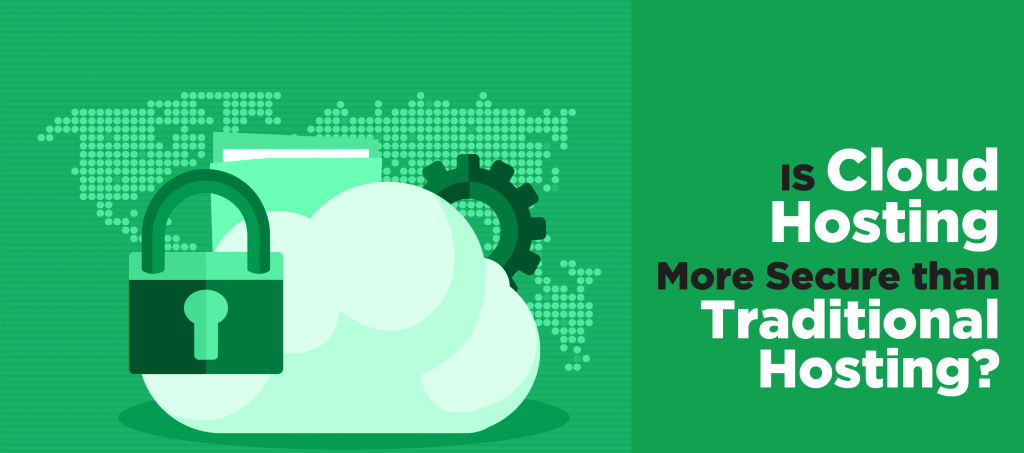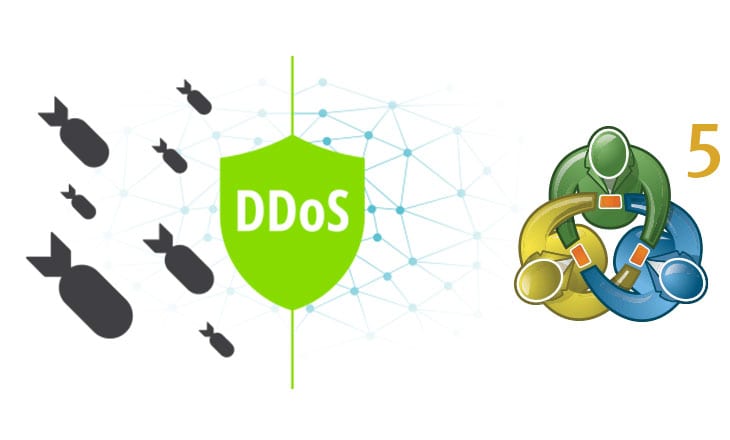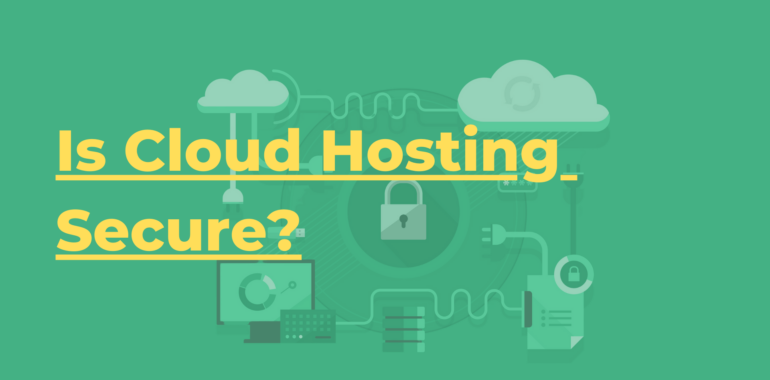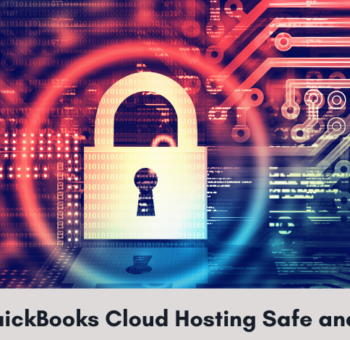The cloud has been a source of concern throughout history whenever data had to be uploaded online, and only recently did the advent of cloud computing ease those worries. For many individuals, its effects were exactly the opposite. Most consumers and businesses store their data locally due to the nature of their habits. It is important that they know the geographic location of the server that will host it, even if it is not on their premises.
Many users do not realize that they have no complete control over the data they handle through virtual servers in a secure cloud hosting environment. In the next few minutes, we will read about one big question: Is Cloud Hosting Secure?
Cloud Hosting: Introduction

People are migrating away from server and dedicated server hosting since the creation of cloud hosting. Unlike bulky physical servers, best cloud hosting uses virtual servers that are stored online and easier to manage.
The benefits of secure cloud hosting include availability, minimum downtime, and cost-effectiveness.
The cloud hosting industry raises a lot of fears, but these assumptions are all wrong. The secure cloud services are becoming the leading technology for businesses and there are many reasons for making the switch.
Cloud Hosting Security
Cloud hosting is becoming increasingly popular, but we can’t rule out the possibility that some businesses may run into problems. The technological world of today has a high probability of failure.
Due to the virtual nature of cloud hosting, some believe that these servers can be easily hacked. It is also common for some of them to worry about data loss during a shutdown.
It is actually more secure to host on a cloud than on a physical server, and data loss is very rare. Secure cloud hosting & cloud storage security are quite important.
Secure Cloud Hosting: Is It Totally Secure or Not??

Early on, cloud computing was seen as a risky concept by many because of the potential for problems with virtualization software. There were some legitimate concerns at the time, as virtualization was a relatively new concept. However, a lot has changed since then, and cloud security has made great progress.
Virtualization, which was once a concern, is now one of the most features of secure cloud hosting. Virtual machines interact with their hardware differently, so some of the hacks are thwarted by this. However, there will only be security benefits if the virtualization is implemented properly program is configured appropriately. Additional tools & other security standards are also quite beneficial.
Keep Cloud-Hosted Websites Secure: Who is Responsible?
It is first and foremost important to determine who is responsible for ensuring the security of cloud-based data. Several people would argue that a website’s security is solely the responsibility of its host, while others would argue the website owner has a responsibility to make sure that the business is functional. There must be a shared responsibility between the client and the service provider.
Secure cloud hosting companies should be careful in choosing passwords because their efforts to configure cloud server security as securely as possible can fail if they choose an easy-to-guess password. The same is true for clients, even if they follow all security best practices, if their host does not monitor their servers properly. A serious approach to data security is necessary if it is to be protected.
Hosting Security & Traditional Hosting Security: The Difference

Security breaches on a website can be accomplished with very few techniques, and many of them work regardless of whether the project is hosted on a physical server or in the cloud. An important difference between the two is the virtualization layer present in secure cloud hosting, which may provide security benefits. The other considerations, however, are essentially the same.
Cloud Hosting Security Aspects To Consider
The process of building a secure cloud hosting environment isn’t something you can check off a checklist. Cycles like these cannot and shouldn’t be broken. In actuality, there is a practically endless list of topics that should be carefully considered, and the topics listed below are very few. Nevertheless, they should give you an idea of how difficult the work is.
Insider Attacks

Customers are concerned about the fact that when they select a secure cloud hosting provider, they are basically trusting them with their websites. Though it is a positive thing to entrust a complex task like website hosting to professionals, it can also be exploited by insiders.
A secure cloud hosting provider can’t neglect the risk of data loss caused by an employee, regardless of whether it was an honest mistake or malicious sabotage. New team members should undergo extensive training, background checks should be completed more thoroughly when hiring, and a formal incident response plan should be developed.
Isolation of Virtual Servers
The fact that, in most cases, many projects are using the same cloud is another issue that consumers frequently express concern about. That way, it reminds them of the setup of a basic shared hosting account. There is some difficulty because people do not understand how the two programs differ fundamentally.
On a traditional shared hosting server, each account shares the server’s hardware resources. In contrast, multiple virtual machines share a cloud while still functioning as different servers. Despite the higher security of this solution, however, the secure cloud hosting provider still needs to ensure that the virtual machines are properly separated.
Risky Software
In the past, hackers have been successful in compromising websites through vulnerable software. Old software with known security flaws is one of their preferred methods. Website owners must update their sites regularly. Popular open-source platforms like WordPress provide new versions periodically to fix security problems discovered with their software as well as to enhance performance.
It may be devastating to a website’s performance to update a full application or even a plugin, and in some cases, it may even cause it to go down. However, older platforms pose far too many security risks to ignore, and secure cloud hosting companies must offer tools to ease the process.
DDoS Protection

Attacks involving Distributed Denial of Service (DDoS) are becoming increasingly typical as they are cheap and easy to launch. Even specialized technological knowledge is not required to conduct DDoS attacks. Most fraudsters hire botnets (networks of malware-infected servers, IoT devices & PCs) and then target a specific target through a hacking forum.
By flooding the targeted website with traffic, the botnet tries to overload the hardware powering it. Cloud-based websites are less vulnerable to DDoS attacks due to their underlying architecture compared with traditional servers. Secure cloud hosting companies, however, can use methods and products to help them secure their clients even more, and these must be included in their security measures.
Access Control
When it comes to network security, a firewall is the easiest tool to use. This program can determine who is attempting to access data from a website and whether that access is permitted.
During a breach investigation and even if the website operator is unable to prevent recurrence, logs from firewalls can be invaluable. An operational firewall is just as important on-premises and in the cloud.
Regulatory Compliance

We’ve seen a number of large occurrences over the years that have impacted millions of people and spurred regulatory bodies all around the world to develop guidelines for deploying security tools and processes. These guidelines apply to both secure cloud hosting providers and website owners, and businesses who meet them are typically awarded stamps and badges, which they proudly display on their websites.
Despite this, security experts argue that these badges are often exaggerated. However, although the standards suggest how to improve service and website security, users and businesses make the costly mistake of believing that once they comply with a certain standard, their work is done.
Keeping a server or hosting account secure is a never-ending process, as previously mentioned. Security threats are constantly evolving, and the most effective strategies for protecting yourself also evolve. Despite corporate standards being updated rather less frequently than they should be, security experts say that meeting a specific standard is not enough to establish confidence in the safety of a website.
More To Read: Managed Cloud Hosting
Conclusion
Hosting environments vary greatly in terms of their security. It is never wise to discuss security in terms of one type of hosting being more secure than another, because a poorly configured cloud server, for example, can be a much easier target for hackers than a properly configured physical machine, and vice versa. A user’s account can be hacked even if they use an easy-to-guess password to safeguard their account.
Hope you admire our efforts to compile up all this content. For any more QuickBooks secure cloud hosting services, you can always count on us.


